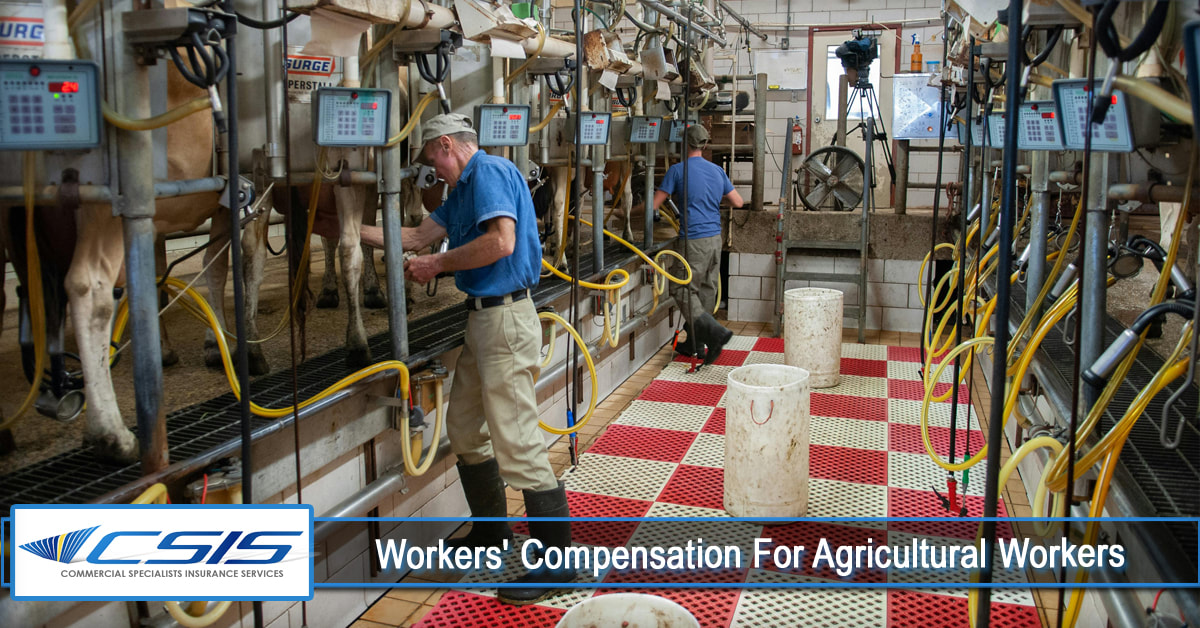CSIS Insurance Services, Inc. Blog |
|
In today's competitive job market, employers are increasingly recognizing the importance of offering comprehensive employee benefits and wellness programs to attract and retain top talent. Beyond salary considerations, workers place significant value on benefits that support their overall well-being, including health insurance, retirement plans, flexible work arrangements, and wellness initiatives. In this article, we'll explore the key components of employee benefits and wellness programs that workers value most, the benefits of investing in employee well-being, and how these programs contribute to a positive workplace culture and employee satisfaction.
0 Comments
In the modern workplace, employees often face various occupational hazards, including the risk of repetitive stress injuries (RSIs). Repetitive stress injuries result from repetitive motions, overexertion, and prolonged periods of poor ergonomics, leading to musculoskeletal disorders and chronic pain. These injuries can have a significant impact on workers' health, productivity, and quality of life. Understanding the relationship between repetitive stress injuries and workers' compensation is essential for both employers and employees to ensure proper protection and support in the event of an injury.
Effective communication is the cornerstone of a successful workplace. Whether you're a manager, employee, or part of a team, your ability to convey ideas, collaborate, and resolve conflicts hinges on your communication skills. In this article, we'll explore the art of effective communication in the workplace, highlighting its importance and how it relates to considerations like Workers Compensation Insurance.
The agricultural sector is a cornerstone of our economy, employing millions of workers who play a crucial role in producing food and resources. However, working in agriculture can be physically demanding and sometimes hazardous. Accidents and injuries can happen, which is why workers' compensation is vital for agricultural workers. In this article, we'll explore what workers' compensation is, its importance for agricultural workers, and how it helps provide financial protection and support in case of work-related injuries or illnesses.
Workplace diversity and inclusion have become more than just buzzwords in recent years. They are essential components of a thriving and successful organization. Embracing diversity and fostering an inclusive workplace culture can lead to increased innovation, improved employee satisfaction, and enhanced overall performance. In this article, we will explore effective strategies for achieving workplace diversity and inclusion and their connection to Workers Compensation Insurance.
In the contracting industry, risk is an omnipresent companion. Whether engaged in constructing towering structures or executing intricate renovations, contractors confront a multitude of hazards on a daily basis. However, when an unforeseen accident or injury strikes, the consequences can be financially and emotionally devastating.
Workers' compensation is a vital insurance policy that provides critical benefits to employees who sustain injuries or illnesses while performing job-related duties. This coverage is not only crucial for the well-being of employees but also carries significant implications for employers who must adhere to legal requirements and obligations.
The construction industry in Thousand Oaks, CA, like many other parts of the country, is witnessing a significant shift in its workforce demographics. With an aging population, it's becoming increasingly important to address the unique challenges that older construction workers face, especially concerning Workers Compensation Insurance. In this blog post, we'll explore the impact of an aging construction workforce and discuss tailored solutions within the context of Workers Compensation Insurance.
When it comes to Workers Compensation Insurance for contractors in Thousand Oaks, CA, the impact on contractor reputation can be significant. Reputation is critical in the construction industry, and contractors who prioritize safety and the well-being of their employees are more likely to attract new business opportunities and retain existing clients. In this blog, we will explore the impact of Workers Compensation Insurance on contractor reputation.
Amid the intricacies of Workers Compensation claims management tailored to contractors in Thousand Oaks, CA, insurance emerges as the cornerstone that ensures both protection and precision. Workers Compensation Insurance stands as a vital shield, encompassing employees in coverage against work-related injuries or illnesses. However, the synergy between insurance and meticulous claims management transcends mere coverage; it encompasses risk mitigation, cost containment, and the holistic well-being of the workforce. This article delves into the pivotal role of insurance in Workers Compensation claims management, dissecting its multifaceted impact on the realm of contractors.
|
Contact Us(888) 501-2747 Archives
July 2024
Categories
All
|
California License Number: 0D80851
Navigation |
Connect With UsShare This Page |
Contact UsCSIS Insurance Services, Inc.
3315 Old Conejo Road Thousand Oaks, CA 91320 (888) 501-2747 Click Here to Email Us |
Location |
Website by InsuranceSplash











 RSS Feed
RSS Feed